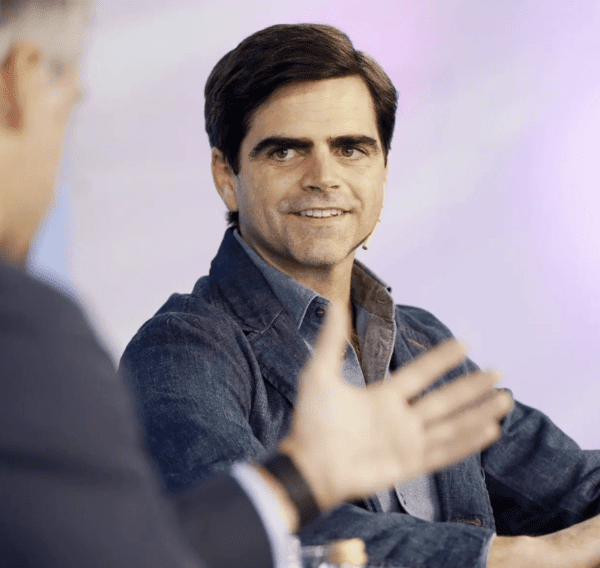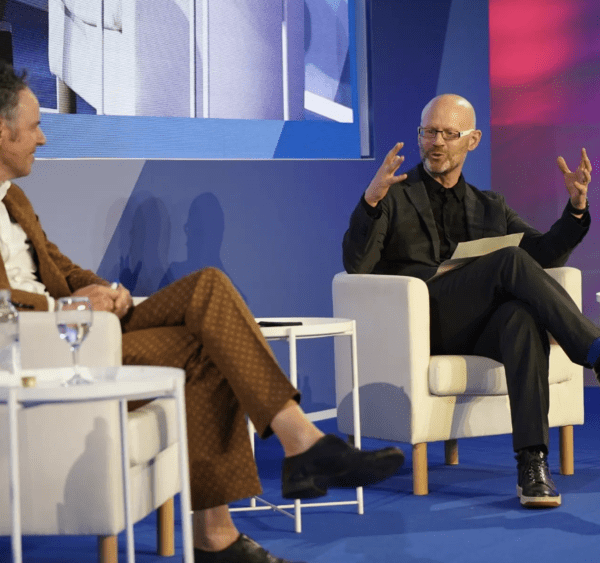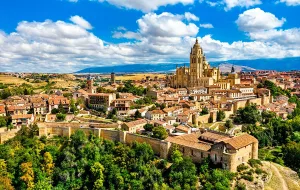Segovia buzzed with intellectual excitement from September 15th to 17th as the renowned Hay Festival took place at IE University’s Segovia campus. This three-day literary event was marked by its professionalism and diversity, offering a wide range of discussions, debates, and literary activities in the charming setting of the historic university town.
One of the highlights of my experience at the Segovia Hay Festival was attending the thought-provoking debate titled “Should We Play God?” This captivating discussion delved deep into the realms of biotechnology and the ethical dilemmas it presents. Carlos Franganillo, a prominent figure in Spanish news broadcasting, skillfully moderated the event. His in-depth understanding of the subject matter, honed through his documentary series ‘10,000 Days,’ was evident as he navigated the intricate web of scientific advancement and its societal implications.
Sharing the stage with Mr. Franganillo was Diego del Alcazar, a multi-talented author who provided a fresh perspective with his debut novel, “La Genética del Tiempo” (The Genetics of Time). Through a thrilling narrative, he cast light on the challenges posed by genetic editing in the quest to improve human nature. It was fascinating to witness these two distinct voices converge and present a holistic view of the complex issues surrounding biotechnology.

What struck me most about the Segovia Hay Festival was the incredible diversity of scholars, authors, and speakers who attended. It was a testament to the festival’s commitment to providing a platform for an array of voices and ideas. From renowned journalists to acclaimed authors, the festival showcased a rich tapestry of intellectual perspectives.

However, it was surprising to note the absence of university students at the event. While the festival attracted a wide range of individuals, it presented a missed opportunity for students to engage with these intellectual luminaries. Perhaps future editions could focus on involving the local student community more actively, fostering a spirit of intellectual curiosity among the youth. The students were emailed about it and it was featured in IE Connects. However despite that, and the large posters by the cathedral, I felt there was a lack of student-focused advertisement. Many of my friends were still completely unaware of what the Hay Festival is, let alone when and where it was happening.
Despite the predominantly Spanish-speaking nature of the event, Segovia’s Hay Festival displayed remarkable professionalism in accommodating a global audience. The provision of headphones with real-time translations for non-Spanish speakers was a thoughtful touch. This allowed everyone, regardless of their linguistic background, to fully engage with the discussions and debates. Additionally, the program booklets provided comprehensive information about each event, ensuring attendees were well-informed about their choices. There was also a book fair as part of the festival which featured all the books discussed and debated. Many of the speakers were available to sign their books after their segments.

The knowledge and helpfulness of the festival staff was impressive; it ensured that attendees had a seamless and enriching experience.
The annual Hay Festival hosted at the Segovia Campus was a celebration of ideas, where intellectual curiosity thrived, and discussions flowed freely. The diverse lineup of speakers, the seamless organisation, and the inclusivity in catering to a global audience made it a memorable experience. While it may have missed the mark in engaging university students more actively, it undoubtedly left attendees with a renewed appreciation for the power of ideas and the importance of engaging in thoughtful discourse. The Hay Festival is a testament to the enduring significance of literature and the arts in shaping our understanding of the world.







